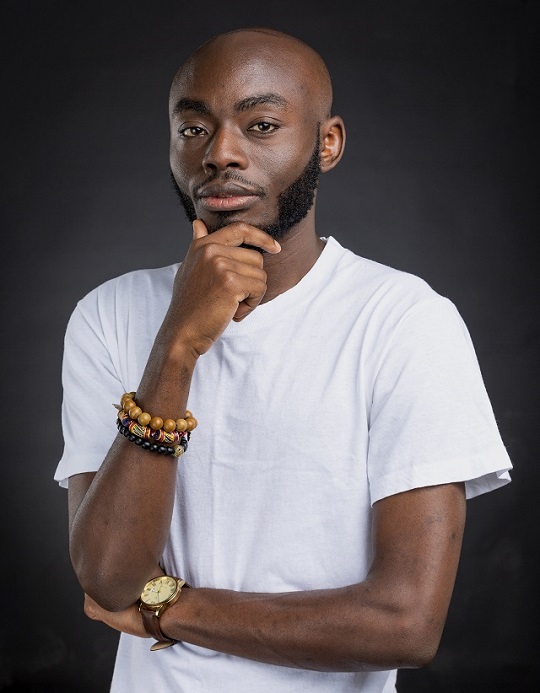By Maryanne W. Waweru
Onyango Otieno is a Kenyan content creator who focuses on sexual reproductive health and rights (SRHR). His areas of interests include healthy masculinity, childhood trauma, mental health, erotic poetry and dance. Onyango participated in IPPF Africa Region’s trailblazing Treasure your Pleasure campaign. We had a chat with him about his SRHR advocacy work and his involvement in the campaign.
Why do you create content? Who is your audience?
I create content as a form of release. I also do it as a medium for information, entertainment, and education. My target audience are Africans who need healing from childhood trauma, and for men who feel confused about their masculinity and who wish to look deeper into their identity.
Tell us about your background and how you got into the SRHR content creation space
Growing up in a conservative African home with an abusive father stifled my voice. I began rebelling at 16 years, where I ran away from home and became a street child. At some point, I became suicidal.
When going through these difficult times, I started writing poetry. At age 20, I ventured into love and erotic poetry, and that's where the magic began. As I grew into my own masculinity while healing my complex trauma, I became more expressive about who I am.
As an artist, I want to go where my society feels uncomfortable. While I create content that celebrates life, I balance it with content that counters the absurdities of the cultures I live in. Since sex has a long history of being silenced, I place it with under the spotlight for it to be seen.
How is your content being received?
I'd say it has been a mixture of many things. There are people who say they have become more comfortable with their sexuality by consuming my content. Others have said they read my erotica as part of foreplay with their partners. Then there are those who completely detest how I talk about sex openly. I appreciate all my audiences’ reactions.
Tell us about the content you created for IPPFAR’s Treasure your Pleasure campaign.
With the Treasure Your Pleasure campaign, I was lucky that the assignment fit right with the nature and type of content I create. I didn't have to be somebody else. It is work that I do everyday, and my audience enjoys this kind of content. The message I wanted to pass across was for more men to get involved in sexual and reproductive health. We need more of us to understand that reproductive health is not just a women's issue.
See some of Onyango’s content here, here and here.

Why did you agree to work with the IPPF Africa Region?
It is because IPPFAR’s work is aligned with mine. IPPFAR creates awareness on sexual reproductive health, and implements programs designed for the African population. One interesting thing is that IPPFAR does not only targets women in its campaigns, but engages men too, which I found to be outstanding.
One of the key lessons that was reaffirmed from the Treasure your Pleasure content I created is that we must be more intentional in including the male demographic in SRHR campaigns and programs. Through my work, I have established that many people are ignorant about pleasure, especially men. It was therefore great to partner with an organization that understands this.
In your opinion, do you think Africans limit themselves from experiencing sexual pleasure?
Yes and no. If you're living in a culture that is separated from its deepest roots by colonisation, you will understand why we are nervous about sex, yet we still like it very much.
All the religious heteropatriarchal white imperialist ghosts are still holding us hostage. Deep in our nervous system; the fear is now subconscious. We pretend it doesn't matter but it does. You see people admonishing abortion in public yet carry it out in private. Our identity is hinged upon how perfectly we perform, because that is what we've had to do to survive as far back as colonialism.
As Africans, we must invest in storytellers who will awaken our people. You don't hear practices like kachabali and kunyaza being taught anymore. We are afraid of pleasure because we're used to pain. It's a trauma response. We mostly use pleasure for escape and not for wellbeing. Interestingly, our bodies can tell we are not okay no matter how much we pretend.
Also read: Sexual Pleasure in Precolonial Africa
Sexual pleasure in African communities is surrounded by lots of taboos, shame and remains silenced within public discourses. Do you think things are changing?
I'd say things are changing. Albeit very slowly, but something is happening. Our generation is more vocal.
Remarkably, I’ve observed that women are more proactive about changing these narratives than men. That is why I do what I do. We are very few men in this space and often with very few resources to make a huge impact as we'd like to.
How can Africans be bolder in how they experience sexual pleasure?
We must start with courage. The courage to ask questions. We should not just live by what we've always been told about sex, especially by the people who want to control our bodies.
The courage to let go of what we've always known and learn something different about pleasure.
The courage to say we don't know where to start. The courage to open conversation. It's not easy, but nothing shall move without courage.
Follow Onyango on Twitter and Istagram.
Photos courtesy: Onyango Otieno.
Maryanne W. Waweru is the Communications Officer, IPPF Africa Regional Office.
For more updates on our work, follow IPPF Africa Region on Facebook, Twitter, Instagram and You Tube.
when











